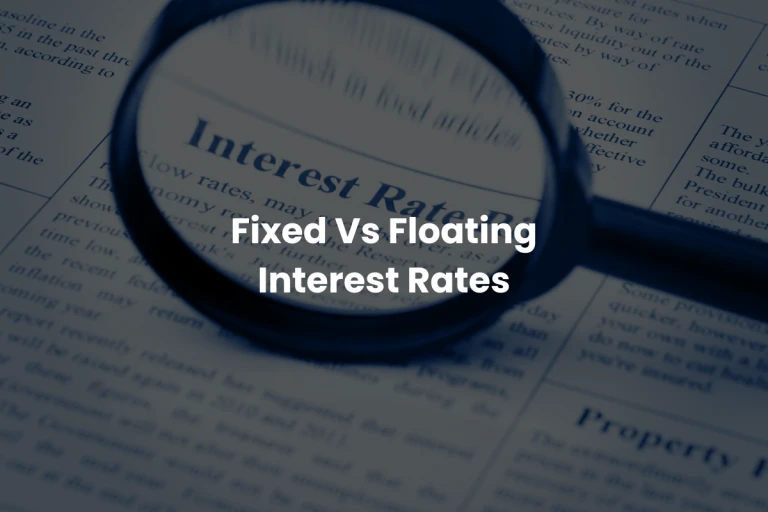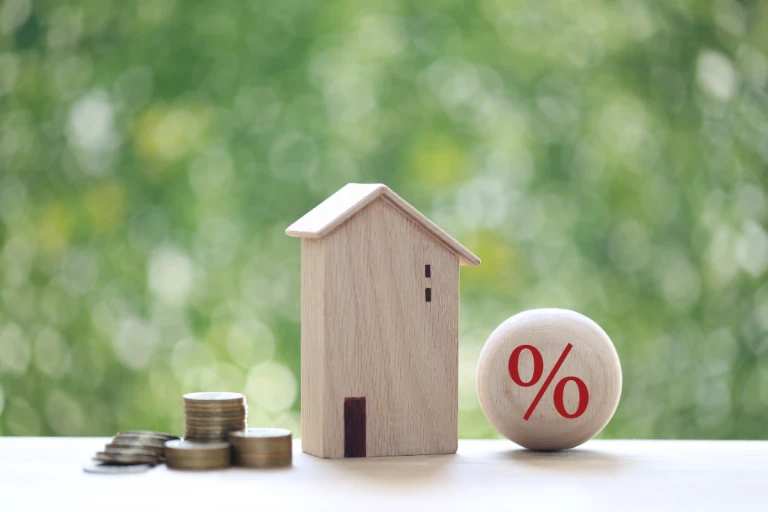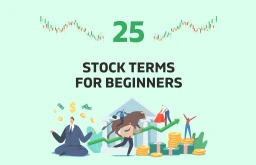Fixed Vs Floating Interest Rates - Everything you need to know!
You're diving into the world of getting a home loan, and here's a big decision you need to make: Should you go for a fixed interest rate or a floating one? It's a common puzzle, and each option has its own good and not-so-good sides. In this article, we'll break it all down for you, explaining everything you need to know in simple terms.

Fixed Interest Rate - What is it?
Imagine you're taking a loan to buy something important, like a house or a car. Now, when you hear about a "fixed interest rate," think of it like this: the interest rate, which is like a fee for borrowing money, stays the same for a set period. It's like having a price tag on your loan that doesn't change for a while.
So, let's say you borrow 10,000 rupees from a bank, and they tell you the fixed interest rate is 5%. This means you'll have to pay back a total of 10,500 rupees – that's the original amount you borrowed (10,000 rupees) plus the interest (500 rupees).
Pros of Fixed Interest Loans
Protection from Market Changes:
Choosing a fixed interest rate is like having a shield against the unpredictable ups and downs of the market. You can relax, knowing that your interest rate won't be affected by market fluctuations – it's a bit like having a financial safety net.
Simplified Financial Planning:
With a fixed interest rate, your monthly payments stay the same. This consistency makes it easy to plan your finances. No surprises mean you can comfortably budget for other life goals and daily expenses without any stress.
Peaceful Financial Journey:
Having fixed monthly payments brings a sense of peace. You won't need to worry about interest rates jumping around; it's a straightforward, peace-of-mind kind of arrangement.
Cons of Fixed Interest Loans
Higher Interest Rates:
The stability of fixed-rate home loans does come at a price. Generally, these loans tend to have a higher interest rate compared to floating-rate loans, potentially increasing the overall amount you repay.
Prepayment Charges:
If you decide to pay off your loan earlier than planned, be ready for a possible prepayment penalty. This downside adds an extra cost if you aim to clear your debt ahead of schedule.

Floating Interest Rate - What is it?
A floating interest rate, as the name implies, is a type of interest rate that can change based on market conditions. Imagine you're getting a Home Loan and opt for a floating interest rate – this means there's a fixed base rate plus a small variable part that can fluctuate with the market. If the base rate changes, your interest rate will also change accordingly.
In simpler terms, it's like catching a ride on the market rollercoaster. The fixed part provides some stability, but the variable part can go up or down based on how the market is doing. So, if the overall interest rates in the market change, your loan's interest rate will move along with them.
Pros of Floating Interest Loans
Lower Initial Costs:
The upside of floating interest rates is that they are typically lower than fixed rates. This can result in a lower monthly payment at the start, freeing up some extra cash in the early phases of your loan.
Potential for Reduced Overall Interest:
Imagine this: if market rates go down, your borrowing costs follow suit. It's like catching a fortunate break – you could end up saving a significant amount on the total interest you pay over the life of the loan.
Flexibility in Early Repayment:
Dreaming of clearing your debt sooner? No worries. With a floating rate, you can make extra payments without facing any penalties, giving you the freedom to become debt-free at your own pace.
Cons of Floating Interest Loans
Challenges in Planning and Budgeting:
The ever-changing nature of interest rates can make budgeting a bit challenging. Your monthly payments might be low one month and noticeably higher the next if market rates make a sudden move, making it trickier to plan ahead.
Vulnerability to Market Forces:
Floating rates are linked to market factors beyond your control. Unexpected events can lead to rate increases, transforming your once-affordable loan into a more expensive commitment. It's like riding the waves of market dynamics, which can be unpredictable.
Can You Switch Between Fixed and Floating Interest rates?
In many cases, yes, you can switch between fixed and floating interest rates, but it depends on the terms and conditions of your loan agreement. Some financial institutions offer this option, allowing borrowers to switch from a fixed to a floating rate or vice versa. It's important to note that there might be a conversion fee, which could be up to 2% of the loan amount. It’s a decision that impacts your EMI, so think it through.
Also read: 15 Agritech Startups Revolutionizing India's Agricultural Sector
The Bottom Line
Just remember, there's no one way for everyone. Your money journey is all yours. Keep it smart, pick what works for you, and here's to your smooth and informed loan journey.
Follow us on Instagram.









